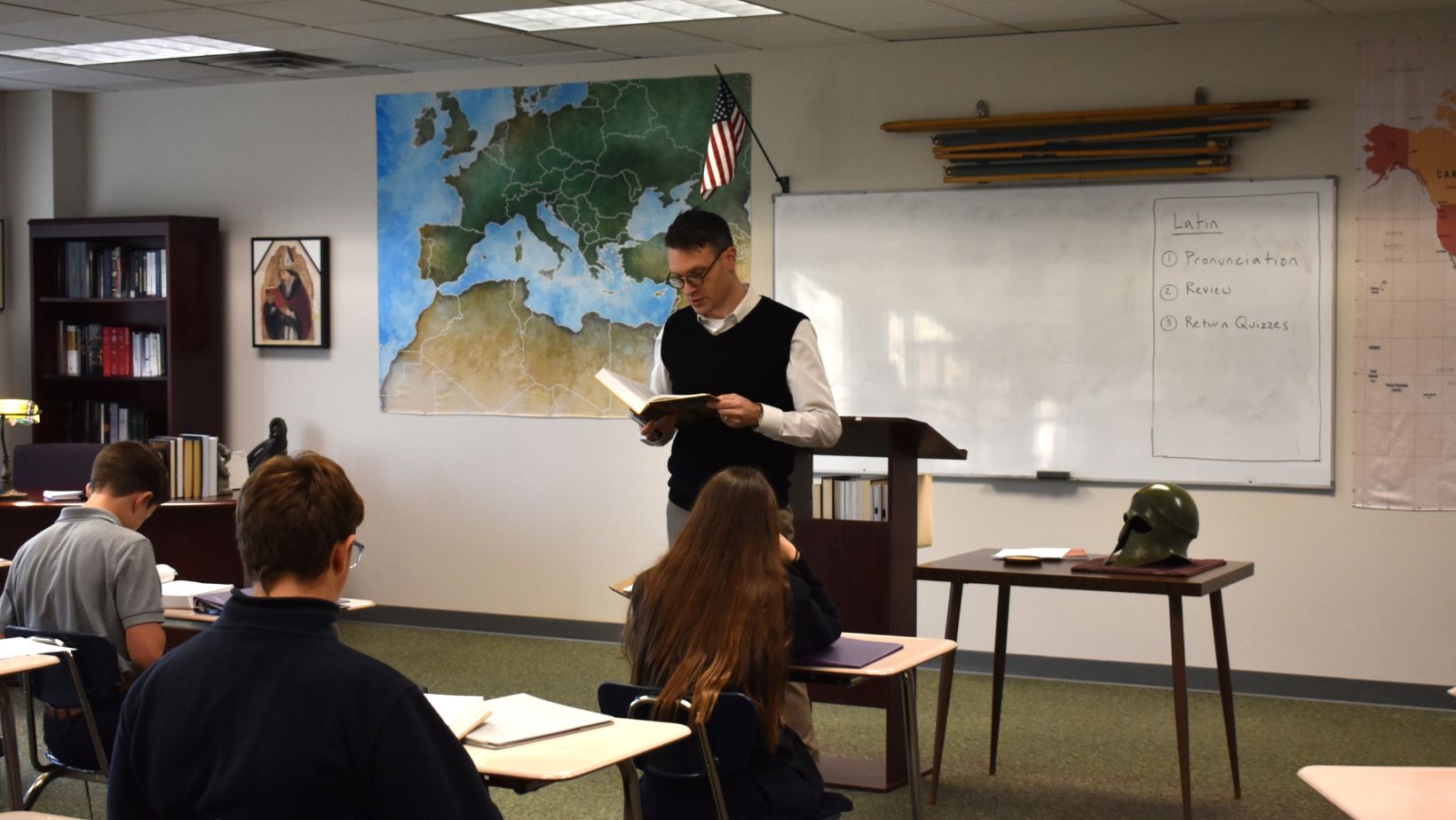One afternoon, a couple of months ago I came across an advertisement for a new school concept that uses AI-based education paired with practical life skills workshops – and have been thinking about it ever since. At the AI-based school students spend two hours a day working on content courses at their own pace on an Al learning platform and then the rest of the day they work at skill-based activities that range from cooking to running an Air BnB complete with business plan. The teachers in this model are called guides – they do not teach content, but rather meet with students and mentor the skills part of the school as well as play with them at recess– it is all part of the model. The creator of this model is vibrant, intelligent, and speaks about her school and AI-based learning with all the charisma that I have about classical education. The cleverly edited videos show constantly happy children working on computers while lounging in bean bag chairs, a beautifully thought-out playground, and guides collaborating with the children in what looks like Utopia.
I am sure the founder likes kids and has a vision for it that she believes in, but when I saw the advertisement and the looked into the model, all I could think of was Ray Bradbury’s novel Fahrenheit 451 where Clarisse goes to a school whose teachers are on a computer and whose citizens are slaves to technology and baseless free-time – the AI in that scenario even changed history. The model leans into technology as the teacher and means to success.
One of the tenants of a Hillsdale K12 American Classical school is that it sees technology as a tool to augment education and not the means of the education. At Columbus Classical Academy teachers have laptops, use a student information system to keep track of schedules, grades, and documentation. CCA utilizes document cameras to help the whole class see a map or math problem and Upper School scholars word process papers and have even been learning about AI – but at the heart of our classrooms are teachers who lead scholars, attend to the hearts of the scholars, and develop the minds of the scholars.
Just as a poster of virtues cannot make a child virtuous, putting a child in front of a computer with Al as the teacher cannot make a child learned. Virtue and knowledge are formed through the fires of experience, observation, practice, and patience. Classical schools, CCA in particular, see technology as a function, not the means to an end – our end being well-rounded matriculated scholars who are independent, joyful, and ready to specialize according to their unique gifts and talents and our means is the in-class transfer of knowledge and consistent training in virtuous behavior.


